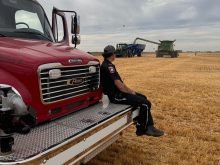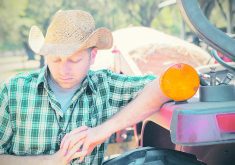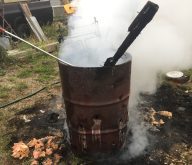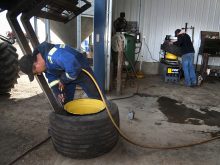FARM SAFETY Research finds women who work both on and off the farm and care for children are likely to be healthier
In a twist that has surprised researchers, a study has found that farm women who do more work are likely to be healthier than those who do less.
Their study, spearheaded by the Canadian Centre for Health and Safety in Agriculture, looks at what they call the third shift. Women who are part of this category do three key things: work on the farm, have an off-farm job and provide care to their child or children.
Notably, any woman who is part of the third shift is generally healthier, according to Valerie Elliot, who helped lead the project. She explained this is due to what’s called the healthy worker effect.
Read Also

Food can play a flavourful role in fun summer activities
Recipes – popsicles are made with lactose-free milk and yogurt so are perfect for those who can’t tolerate milk, while everyoneelse will also enjoy them
“What that means is people who are working systematically are healthier than those who are unemployed. They don’t have illnesses or disabilities because they’re able to participate,” she said.
“We originally thought these women would end up in poorer health outcomes, so it was a surprise. The women in our study were a strong and resilient group.”
Elliot and her team used survey data from slightly less than 1,000 farms who took part in 2013, collecting information only from women who were older than 18. About 20 percent of them ended up in the third shift category, “a healthy handful,” Elliot said.
“I think that even though farm women are often unacknowledged in terms of farm labour, clearly the women in our study were actively involved in a great deal of farm work,” she said.
“It warrants recognition that many of these women are involved in other tasks, like in the household and working off the farm. They’re a very busy group that’s clearly strong and healthy.”
Elliot, who is a farm woman, said her own personal experience inspired her to launch the study.
“This study was really important to me,” she said.
“I’m not as hands-on in the farm aspect as some others might be, but even living on the farm and the demands that there are, it’s definitely an extra burden.”
William Pickett, a professor in public health sciences at Queen’s University who helped with the study, said it shows farm women deserve a great deal of respect for the work they do.
“It’s the intensity of what they have to do, especially at busy times of production, and how adaptable they have to be,” he said.
“We all know the farm comes with hazards. There are lots of different types of risks and, to be able to manage that, I have a lot of respect for that.”
Elliot is now focusing on different research, but she said it would be great if this topic could be explored further.
“It would be interesting to get more qualitative data, where we get more descriptive things like interviews and conversations,” she said.
“If we did that, we could see what other underlying determinants there are with their health and any psychological aspects of being a member of the third shift.”

















